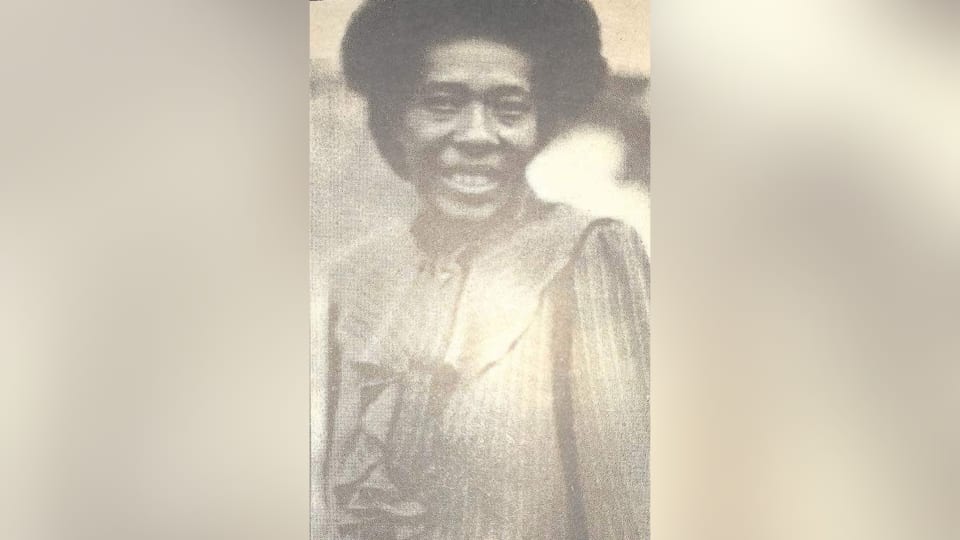After 10 years of experience in the secretarial field, Elizabeth Tuigilai ventured into establishing her own business – Executive Secretarial Services.
Things had always been running smoothly with regular customers she then extended into an employment agency.
However, things took a turn for Elizabeth when she realised something she had come across while visiting her brother in prison.
She saw other inmates who did not have any family or friends to visit them and could only think about what would happen when they were released.
What really moved Elizabeth toward prisoners was when she visited her younger brother serving a prison term and happened to meet several others.
“When I got to know them, they related their stories about what made them commit criminal acts. One reason was that they were young, with a lot of energy and unemployed. I decided there and then to assist them as much as possible,” she said.
Elizabeth shared this story of hers with The Fiji Times on September 20, 1984, with a heart heavy for these ex-prisoners. On a special occasion, Elizabeth helped to get one prisoner released on a compulsory supervision order.
Since then, she had helped a few more in similar ways. She said the sad thing was that once the prisoners were released, they do not have any family or job to fall back on.
“To solve the problem, we have to help prisoners while they are serving their terms and after they are released.
“The most important thing is to find jobs for them and this is the cause I have taken up.”
Elizabeth had two experienced secretaries on her staff besides herself to manage her office – both the secretarial service and the employment agency – while she spends most of her time with prison inmates.
“Now I am working on finding employment for ex-prisoners and look forward to obtaining assistance from the public.”
Elizabeth particularly appeals to families of prisoners to work out a plan of work and how best they can be helped once they are released.
“I wish to meet the families and see what resources they have, if they have land then the released person can develop a farm for himself, something concrete to call his own,” she said. Elizabeth said society, to assist ex-prisoners, had to first abandon traditional attitudes.
“Once a person serves a prison term he is stigmatised for life, despised and ostracised from the community, let alone whether anybody would offer him a job.”
Elizabeth found that many prisoners have certain skills and all that was needed was finance to set up projects to put those skills to good use.
“I like to see employment is created for them and I appeal to the public to come forward to assist,” said Elizabeth who was born in Suva.
She was brought up with her mother and five other siblings when her father died a soldier during his peace-keeping duties. She attended St Joseph’s Secondary School, concentrated on commercial training and left in 1974 to work as a freelance secretary.
“I worked for overseas engineering firms, Pacific Hotels, Qantas and numerous companies. The longest I served in anyone place was six months,” she said.
Later, she worked as a bank officer and at Air Pacific, again not staying at the post more than one or two years.
She says “that if she had stuck to one place she would not have gained the experience she has now”.
“I wanted to work in an area where I could help the people and serve my country – the reason I started the secretarial service, the employment agency and now a job program for the prison inmates,” she said.
Elizabeth feels it is society’s duty to extend assistance to prisoners.
A good number of them are fortunate to have families who care for them, continuously visit until they come home and be accepted to work on the family farm etc.
“But what about the ones that have nothing at all in terms of employment, skills, education and no families. These are the ones I am concerned about and hope the public
will join me to serve the less fortunate ones.”



